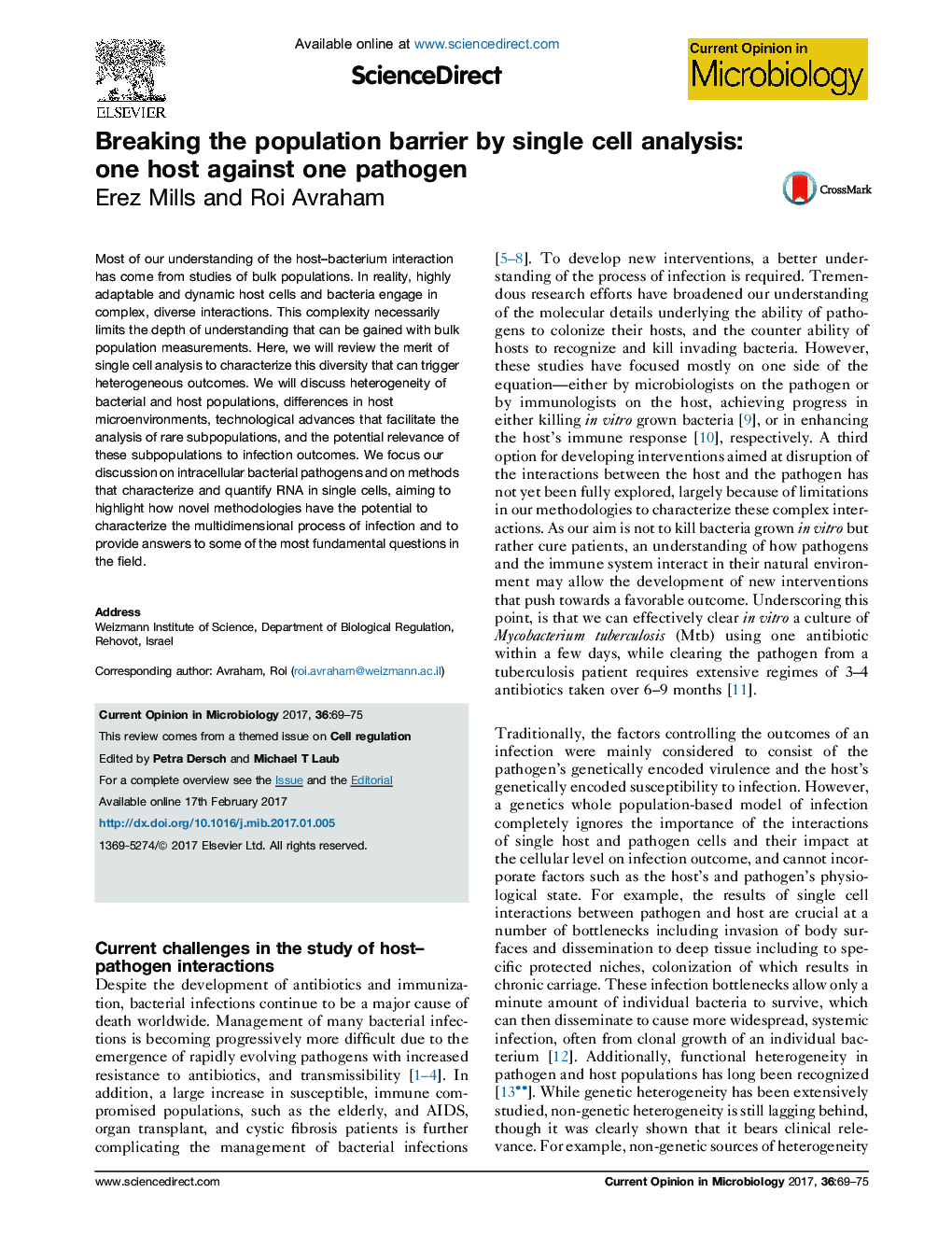| Article ID | Journal | Published Year | Pages | File Type |
|---|---|---|---|---|
| 5671750 | Current Opinion in Microbiology | 2017 | 7 Pages |
â¢Heterogeneity in host-pathogen interactions has long been recognized but remains poorly characterized.â¢Single cell interactions likely determine infection outcome.â¢The recent explosion in single cell methods is poised to lead to a resurgence in the field of host-pathogen interactions.â¢We review here the major gaps of in vivo infection that can be addressed by single cell RNA-seq methods.
Most of our understanding of the host-bacterium interaction has come from studies of bulk populations. In reality, highly adaptable and dynamic host cells and bacteria engage in complex, diverse interactions. This complexity necessarily limits the depth of understanding that can be gained with bulk population measurements. Here, we will review the merit of single cell analysis to characterize this diversity that can trigger heterogeneous outcomes. We will discuss heterogeneity of bacterial and host populations, differences in host microenvironments, technological advances that facilitate the analysis of rare subpopulations, and the potential relevance of these subpopulations to infection outcomes. We focus our discussion on intracellular bacterial pathogens and on methods that characterize and quantify RNA in single cells, aiming to highlight how novel methodologies have the potential to characterize the multidimensional process of infection and to provide answers to some of the most fundamental questions in the field.
